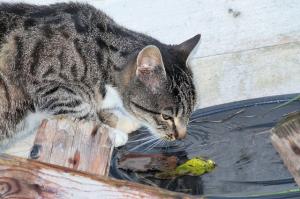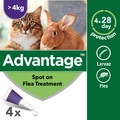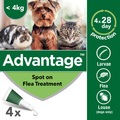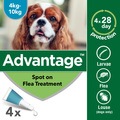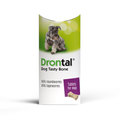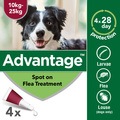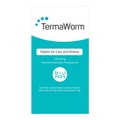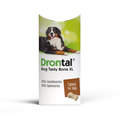Anti-freeze, or ethylene glycol, is regularly used at this time of year as a coolant in car radiators and is the leading cause of serious accidental poisoning in cats and dogs. Ethylene glycol is a toxin that makes up roughly 95% of all commercial anti-freeze solutions. It isn’t poisonous in itself, but when broken down in the body and absorbed, ethylene glycol compounds are highly toxic, acidifying the blood and eventually leading to total renal failure.
Because the early signs of ethylene glycol poisoning are non-specific and are quite often mistaken for other problems, incidences of poisoning commonly aren’t treated within the critical period when veterinary intervention could be successful. Unless you are fortunate enough to catch your pet ingesting anti-freeze, you might put down its general malaise to simply being ‘under the weather’ or ‘out of sorts,’ rather than seeking immediate veterinary help.
By the time your pet does start displaying obvious symptoms, it is likely to have become uremic, meaning the kidneys have failed. At this point, the prognosis is usually poor.
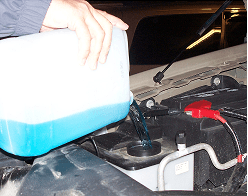 Unfortunately, anti-freeze is thought to have a sweet taste, something which makes it immediately appealing to animals, especially cats. The additive is also odourless and colourless (sometimes) so cats and dogs aren’t repelled by it, thinking instead that it might be some sweet tasting water. For this reason it is essential that, if there is a spillage of anti-freeze from your vehicle that makes it onto the ground, you clean it up before your pet has access to it.
Unfortunately, anti-freeze is thought to have a sweet taste, something which makes it immediately appealing to animals, especially cats. The additive is also odourless and colourless (sometimes) so cats and dogs aren’t repelled by it, thinking instead that it might be some sweet tasting water. For this reason it is essential that, if there is a spillage of anti-freeze from your vehicle that makes it onto the ground, you clean it up before your pet has access to it.
If you see your pet ingesting, or suspect it has ingested anti-freeze, contact your vet immediately. The sooner it’s treated, the greater your pet's chance of survival, even if only a small amount is consumed. It is thought that less than 5 tablespoons of anti-freeze is enough to poison a medium-sized dog, with much less affecting cats (1 tablespoon).
There are three stages of anti-freeze poisoning; initial symptoms, which may be evident within 30 minutes of ingestion, are relatively minor (i.e. vomiting, a 'tipsy' or un-coordinated gait, tremors or twitching, increased thirst and urination, and mild to severe depression). Moving into stage 2, animals tend to stop displaying obvious symptoms while the toxin is being absorbed from the digestive system and causing internal damage.
By stage 3 of poisoning (usually within 12-24 hours in cats and 36-72 hours in dogs), symptoms will progress catastrophically, with severe lethargy and depression being evident, along with a tender or painful abdomen (around the kidneys), excessive salivation, a low body temperature and rapid heart rate, convulsions and complete deterioration.
If you are certain your pet has consumed anti-freeze and isn't suffering from some lesser complaint, before taking it along to the vet, try giving it a strong salt water solution to make it vomit up the harmful toxin. Do this no more than 3 times at 10 minute intervals and, if unsuccessful, go straight to your nearest veterinary practice. Others recommend giving a small amount of neat spirit, which acts almost as an antidote for the ethylene.
 Because anti-freeze is a common product found in most households and garages, our pets are frequently exposed to it, especially when we top up our cars and it leaks from the radiator. Cats are a lot more likely to lick this up than dogs, being left to wander unattended outside, and need to ingest a far smaller amount of ethylene glycol to be in danger. If you own a cat or know of cats in your area, be particularly vigilant about using anti-freeze and make sure it is stored well out of harm's way.
Because anti-freeze is a common product found in most households and garages, our pets are frequently exposed to it, especially when we top up our cars and it leaks from the radiator. Cats are a lot more likely to lick this up than dogs, being left to wander unattended outside, and need to ingest a far smaller amount of ethylene glycol to be in danger. If you own a cat or know of cats in your area, be particularly vigilant about using anti-freeze and make sure it is stored well out of harm's way.
Thankfully anti-freeze poisoning is completely avoidable so, as long as you are sensible about where you leave it and how you use it (and your neighbours too!), there shouldn't be any danger to your pets. Make sure all containers are securely sealed after use and be sure to check the floors of garages and driveways for any spillages. If you use anti-freeze a lot at this time of year, think about switching to a propylene glycol-based one instead as, while it is still toxic, it is far safer than the ethylene glycol solutions on the market.
If you have any further advice on keeping your pets safe from anti-freeze poisoning or any experiences of your own, please share it with our other readers! Feel free to contact me directly with questions and/or suggestions for future blog posts: [email protected]
Written by: Hannah
